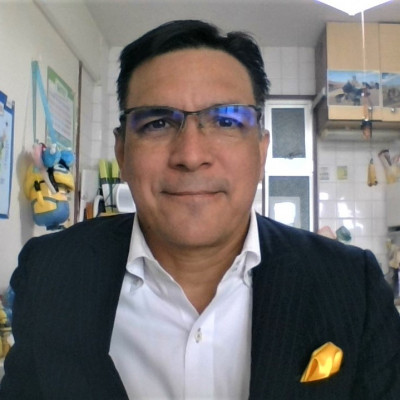Grant Osterman
Family English School International
Dr. Osterman has been teaching in Japan since 1993. Originally from a small Midwestern town in the United States, he earned his bachelor’s degree in psychology and a master’s degree in education from the University of Maryland. After a short hiatus, he completed his doctorate degree from Northcentral University in educational leadership. Over his career, he has taught at elementary schools, junior high schools, universities, and is an administrator at a private school in Okinawa. He joined JALT in 1995 and has served in many roles for the Okinawa chapter. Currently, he is the Okinawa Chapter membership chair and the Teaching Younger Learners Special Interest Group coordinator for JALT. He is active in JALT functions and enjoys monthly professional development trips to Tokyo.

Sessions
Teaching Younger Learners Forum
In the wake of COVID-19, we are going to have a forum that is open to the public using on-line technology. Here we will discuss the progress of the SIG, what is going on, and the plans for the future. We should also have time to address any teaching ideas you have for others and work to better our teaching with suggestions from a panel of experienced teachers. Please join us in sharing your ideas and thoughts!
An overview of a school's curriculum for the student-centered classroom
In this show and tell presentation, the speaker will talk about a school's four skills curriculum for a student-centered classroom. Although not a research-based presentation, much of what will be discussed will focused on research in 2018 from the United States and will follow the seven principles of student-centered learning. Those principles are learning that has positive relationships, whole child needs, positive identity, student ownership and agency, real-world relevant, competency progression, and anytime/anywhere features. The target audience will be teachers of kindergarten through 12th grade students. As many educators know, a school’s curriculum can set it apart from other competitors in the same geographical region. In other words, a school that focuses on its learners, and not just a one size fits all ideology, has a greater chance at reaching all learners in its institution. Specifically, the presenter will talk about a schools’ method used to instruct students, a differentiated curriculum, an effect assessment and evaluation process, educational results, and finally whether or not this matches the location the teacher works in. This will be an interactive presentation with questions being raised during discussion. There will be personal stories and lessons learned from over two decades of running a conversation school. Participant takeaways will be helping them assess their current curriculum needs and showing them how to develop a solid student-centered curriculum that benefits both their students and the school where they work. With a student-centered ideology in place, the pedagogy shifts from being standardized to individualized.